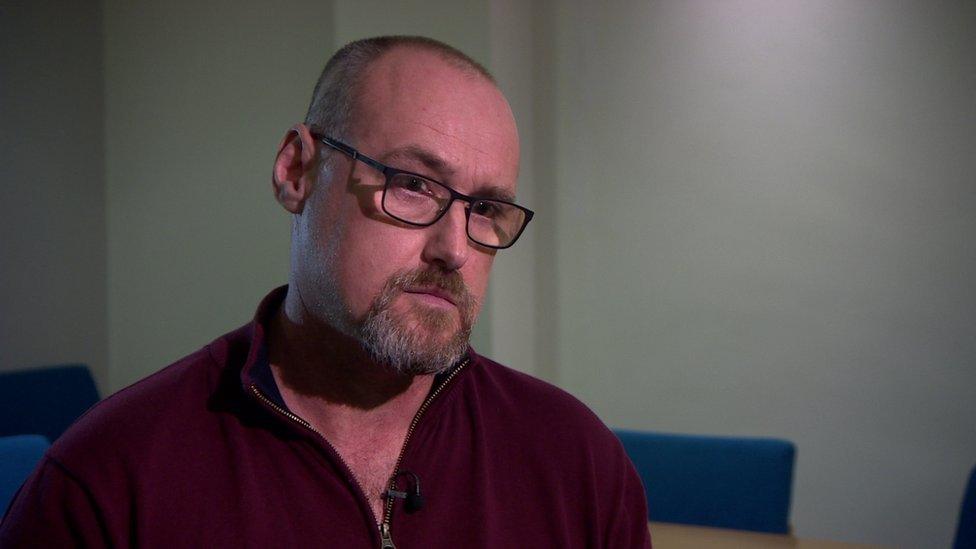Police Scotland officers ordered to shave off beards
- Published
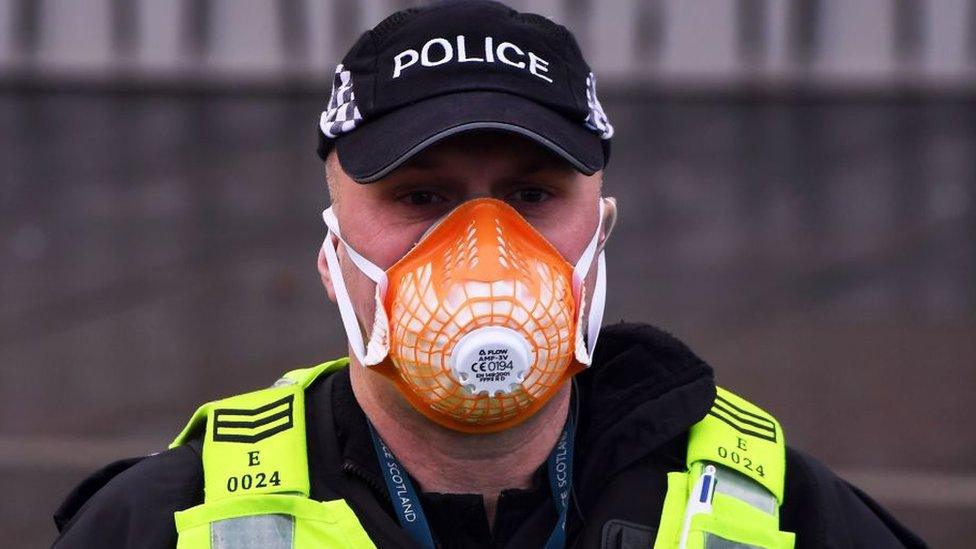
The clean-shaven policy is to allow officers to wear protective masks
Police Scotland is planning to introduce a new clean-shaven policy for frontline officers, according to correspondence seen by the BBC.
It means hundreds of officers will have to shave off their beards and moustaches by the end of the month.
Four are understood to be taking legal action in relation to the policy.
Police Scotland said it was necessary so officers and staff could wear protective FFP3 masks which require users to be clean-shaven.
The policy, which also covers civilian staff in frontline roles, has been approved by the chief constable and is due to be introduced on 29 May.
During the Covid pandemic police officers were fitted with specialist masks designed to protect them from the virus.
A message posted on Police Scotland's internal website from Assistant Chief Constable Alan Speirs said lessons learned from the pandemic identified that FFP3 masks offered the most appropriate and effective respiratory protection to officers and staff.
He said that while the risk from coronavirus had lowered, wider risks remained to officers and staff attending calls such as fires, road accidents and chemical incidents which required PPE (personal protective equipment) to be worn.
Police Scotland's new respiratory protective equipment (RPE) policy will mean that where it can be "reasonably foreseen" that any officer or member of staff will use an FFP3 mask they should be clean-shaven.
This includes all local policing frontline officers, roads policing, firearms and public order officers.
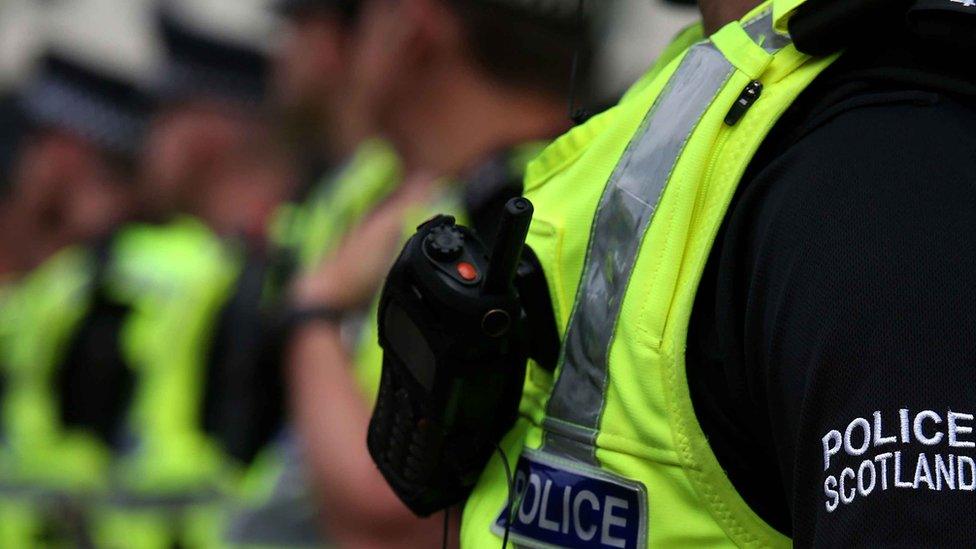
ACC Speirs said in the message: "The safety of our people remains a priority and it is clear that a single overarching policy on the use of protective masks is required."
There will be exemptions for religious, cultural, disability or medical reasons. In these circumstances, the force is seeking to introduce an alternative type of respiratory protection.
Police Scotland has about 17,000 officers and 6,000 staff.
It is the UK's second biggest force behind the Metropolitan police.
The Met's policy says "beards and moustaches are allowed, but they mustn't look unkempt. Keep them trimmed and smart".
The Scottish Police Federation, which represents rank-and-file police officers, said it had been inundated with complaints about the policy which it said was causing "angst" for many officers.
It said it was supporting several members who had lodged employment tribunal cases and had sought legal opinion relating to health and safety, discrimination and human rights.
The federation's general secretary, David Kennedy, told the BBC's Good Morning Scotland programme: "The health and safety executive guidance is that a policy like this should only be utilised as a last resort and there have been relevant questions raised by officers as to why this policy is now being proposed."
"People would be facing misconduct if they didn't shave. Some officers may have to shave twice a day for these masks to work."
Mr Kennedy said he hoped Police Scotland would reverse the decision, and said there were "other health and safety issues" the force should be focusing on.
'Understand the frustrations'
In a statement, ACC Speirs said the policy was being introduced to protect those on the frontline and that the FFP3 mask "offers the most appropriate and effective respiratory protection to officers and staff".
He added: "While the risk from coronavirus has lowered, wider risks remain to those attending calls, such as fires, road accidents and chemical incidents which require PPE to be worn.
"The exception to this policy covers officers and staff who cannot shave for religious, cultural, disability or medical reasons. In these circumstances, Police Scotland is seeking to introduce an alternative type of respiratory protection.
"We understand the frustrations among those affected on the frontline, but the use of PPE is absolutely necessary to protect officers and staff from serious health risks."
ACC Speirs said the force undertake a full consultation ahead of the policy being introduced, and that a full human rights impact assessment was being carried out as part of the process.
The National Sikh Police Association said it supported the new measures and could understand why Police Scotland wanted to introduce the clean shaven policy.
A spokesman said: "We welcome the exemptions, including those for our Sikh colleagues. The alternative respirators are an important component of the policy and we trust the investment in the alternative equipment will be sufficient".
Related topics
- Published23 February 2023
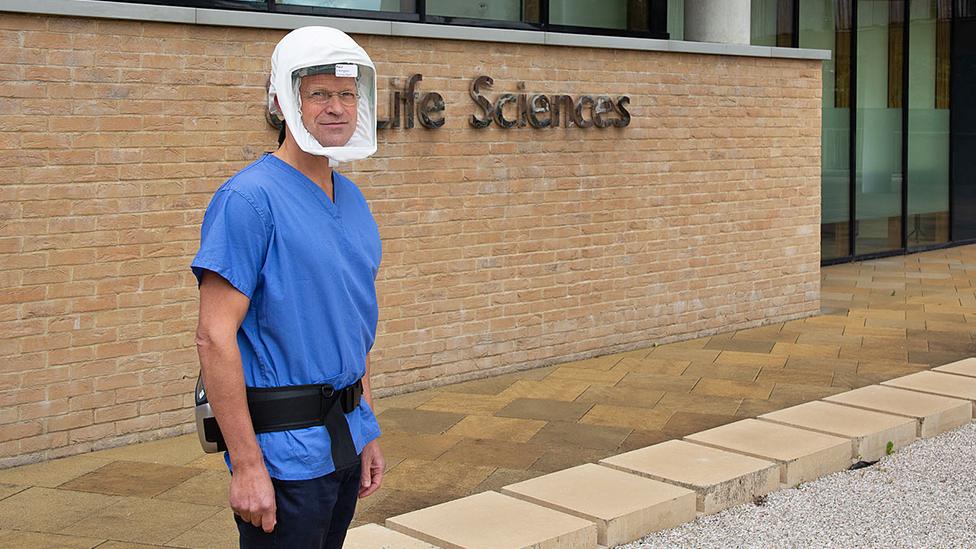
- Published5 May 2021
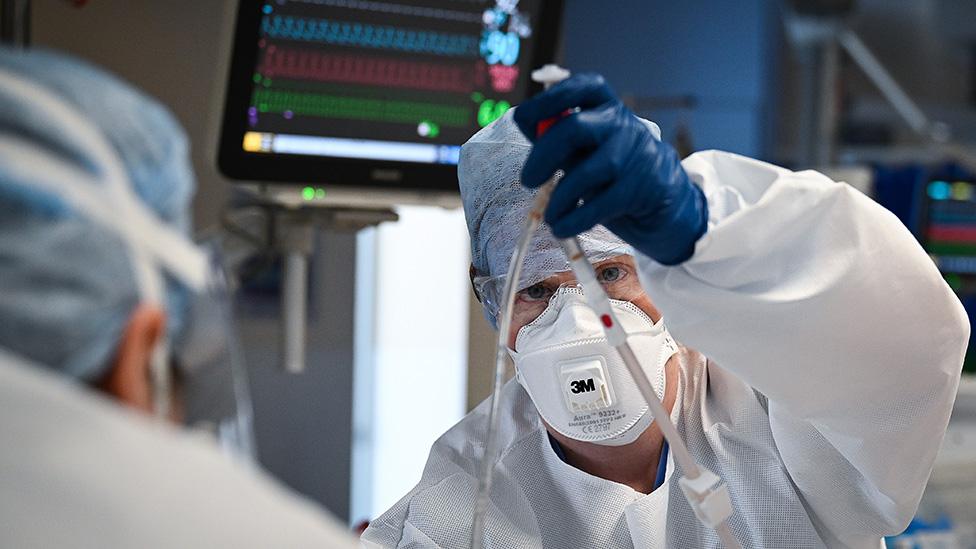
- Published8 October 2019
